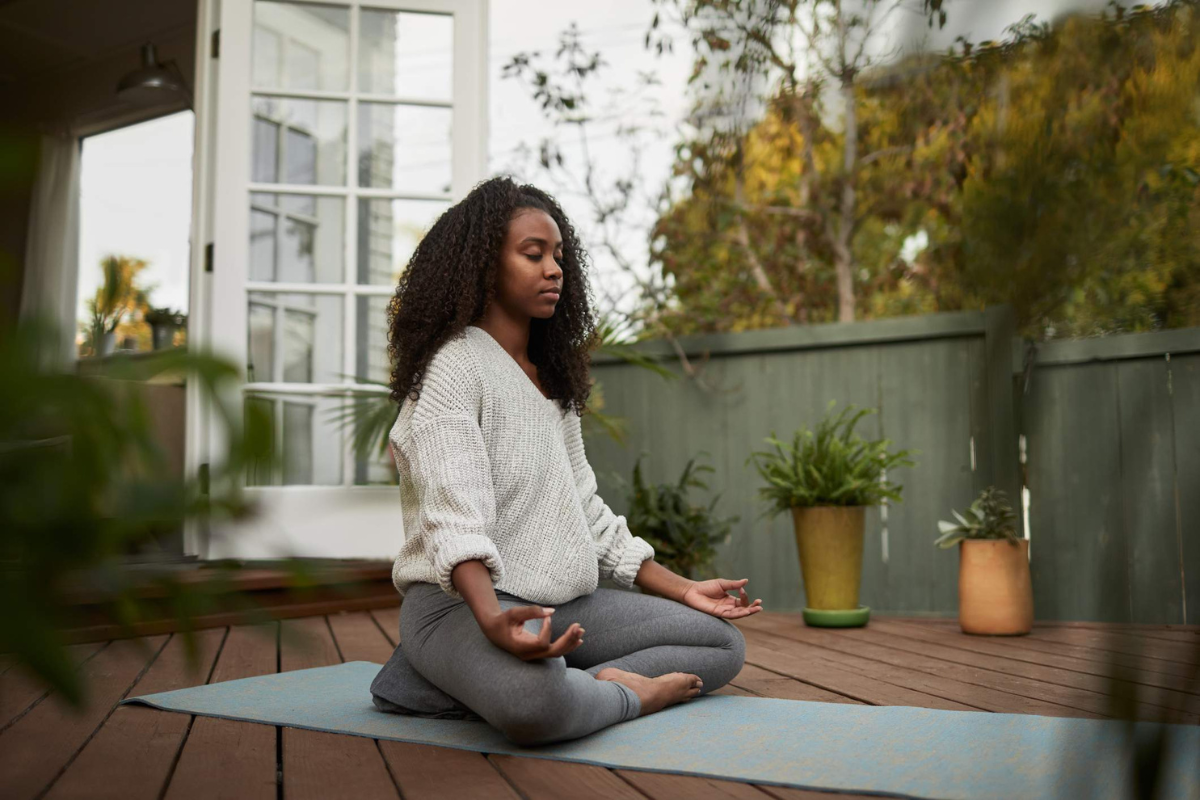
Mindfulness Practices to Enhance Your Self-Awareness and Well-Being
Devin Riley
![]() August 05, 2024
August 05, 2024
Mindfulness is a practice rooted in ancient traditions, yet it has gained substantial attention in contemporary wellness discussions. It involves being present and fully engaged at the moment, with a non-judgemental awareness of your thoughts, feelings, and surroundings. Embracing mindfulness can profoundly affect your overall well-being, offering numerous benefits that encompass both mental and physical health. This practice helps cultivate a deeper understanding of oneself, leading to enhanced emotional resilience, improved relationships, and a greater sense of balance in life. Mindfulness is much more than a trend; it's a time-honored practice that involves focusing on the present moment with intention and acceptance. This practice has its roots in various spiritual and philosophical traditions, including Buddhism, which emphasizes living in the now and understanding the nature of the mind. By practicing mindfulness, individuals can experience significant improvements in mental health, including reduced symptoms of anxiety and depression. The focus on present-moment awareness helps break the cycle of rumination and excessive worry, which often exacerbates mental health issues. Furthermore, mindfulness can positively impact physical health by lowering stress levels, which contributes to better cardiovascular health and improved sleep quality. Emotionally, it enhances self-compassion and resilience, allowing individuals to cope more effectively with life's challenges. Mindful breathing is one of the foundational mindfulness practices. It involves paying close attention to your breath as it flows in and out, allowing you to anchor yourself in the present moment. Techniques such as diaphragmatic breathing and counting each breath can enhance this practice, helping to calm the mind and reduce stress. Mindful breathing fosters a deeper connection with your inner self, providing clarity and grounding amidst daily chaos. Another essential mindfulness practice is the body scan meditation. This technique involves mentally scanning your body from head to toe, paying attention to any sensations or areas of tension. By focusing on the physical sensations in different parts of the body, you gain valuable insights into how stress and emotions manifest physically. This practice not only helps in identifying areas of stress but also promotes relaxation and greater body awareness. Mindful observation is a practice that involves paying deliberate attention to your surroundings and sensory experiences without judgment. This could be as simple as observing the details of a flower or the sounds of your environment. Engaging in mindful observation helps you appreciate the richness of your experiences and develop a heightened sense of awareness. By immersing yourself in the present moment, you foster a deeper connection with the world around you. Incorporating mindfulness into daily activities can significantly enhance your overall well-being. Mindful eating, for instance, involves paying full attention to the taste, texture, and aroma of your food, which can improve your relationship with eating and promote healthier choices. Similarly, practicing mindfulness during routine activities, such as walking or washing dishes, helps you stay present and fully engaged. This approach can transform mundane tasks into opportunities for mindfulness, making it easier to integrate this practice into your life. Creating a consistent mindfulness routine is crucial for reaping its benefits. Setting aside dedicated time each day for mindfulness practice, whether through meditation or mindful activities, helps establish a habit. Designing a tranquil space for mindfulness practice and finding a time that suits your schedule can enhance the effectiveness of your routine. Addressing common obstacles, such as a busy schedule or distractions, with strategies like short, focused sessions or using mindfulness apps can help maintain your practice. Emotional awareness and acceptance are vital components of mindfulness. Recognizing and accepting your emotions without judgment allows you to understand and manage them more effectively. Mindfulness practices enable you to observe your emotional responses and gain insight into their origins, helping to reduce their intensity and impact. Techniques such as mindful breathing and body scans can be particularly useful in managing emotions, providing a calm and balanced perspective. Mindful journaling is another powerful technique for exploring thoughts and emotions. This practice involves writing down your reflections and feelings in a non-judgmental way, allowing you to process and understand your experiences better. Journaling helps in identifying patterns and triggers in your emotional responses, providing valuable insights for personal growth. By incorporating mindfulness into your journaling practice, you enhance your self-awareness and emotional clarity. Loving-kindness meditation is an advanced mindfulness practice that focuses on developing compassion and kindness towards yourself and others. This technique involves silently repeating phrases that express good wishes for yourself and others, cultivating a sense of empathy and connection. Practicing loving-kindness meditation can improve your relationships and create a more positive outlook on life by fostering a greater sense of compassion and understanding. Mindfulness can also be applied to conflict resolution, offering strategies to manage and resolve disputes effectively. By approaching conflicts with mindfulness, you can maintain a calm and balanced perspective, enhancing your ability to listen and communicate effectively. This practice helps in navigating challenging conversations with empathy and respect, fostering healthier and more constructive interactions. Engaging with a holistic mental health and personal growth coach can significantly enhance your mindfulness journey. Such a coach provides personalized support, helping you integrate mindfulness practices into your daily life and address specific challenges. A coach can tailor mindfulness techniques to your individual needs, offering guidance and accountability to help you stay committed to your practice. When selecting a coach, consider their approach to mindfulness and their ability to align with your personal goals. A well-suited coach will offer valuable insights and strategies to enhance your mindfulness practice, contributing to your overall personal growth and well-being. By working with a coach, you gain a supportive partner in your journey towards greater self-awareness and emotional resilience. Embracing mindfulness practices can lead to profound transformations in your life, enhancing your self-awareness and overall well-being. By incorporating these practices into your daily routine and seeking support from a holistic coach, you can cultivate a deeper understanding of yourself and navigate life's challenges with greater ease and clarity. Mindfulness offers a path to a more balanced and fulfilling life, empowering you to connect with yourself and others on a deeper level.Understanding Mindfulness and Its Benefits
Core Mindfulness Practices for Self-Awareness
Integrating Mindfulness into Daily Life
Mindfulness Techniques for Emotional Regulation
Advanced Mindfulness Techniques
The Role of a Holistic Mental Health and Personal Growth Coach in Mindfulness Practice

Recent Articles
Exploring Self-Discovery: How Holistic Coaching Can Help You Find Your Purpose
Self-discovery is a profound a...
![]() Aug 21, 2024
Aug 21, 2024
The Role of Empathy in Holistic Mental Health Coaching
Holistic mental health coachin...
![]() Aug 20, 2024
Aug 20, 2024
Conflict Resolution Skills for Healthier Relationships
Understanding Conflict in Rela...
![]() Aug 19, 2024
Aug 19, 2024
Overcoming Mental Health Challenges with Holistic Coaching Approaches
Understanding Holistic Mental ...
![]() Aug 18, 2024
Aug 18, 2024
Effective Strategies for Conflict Resolution in Personal and Professional Relationships
Understanding Conflict in Rela...
![]() Aug 17, 2024
Aug 17, 2024
From Stress to Success: Managing Work and Personal Life Balance
Understanding the Modern Work-...
![]() Aug 16, 2024
Aug 16, 2024
Improving Your Personal Growth Journey with Holistic Coaching
Understanding Holistic Coachin...
![]() Aug 15, 2024
Aug 15, 2024
Effective Coping Strategies for Managing Stress and Emotional Challenges
Understanding Stress and Emoti...
![]() Aug 14, 2024
Aug 14, 2024
Unlocking Emotional Resilience: A Holistic Approach to Mental Health
Understanding Emotional Resili...
![]() Aug 13, 2024
Aug 13, 2024
Enhancing Your Relationship Skills: Tools and Techniques for Better Communication
Effective communication lies a...
![]() Aug 12, 2024
Aug 12, 2024
The Power of Active Listening in Holistic Coaching
Holistic coaching integrates a...
![]() Aug 11, 2024
Aug 11, 2024
Creating a Safe Space: The Importance of Empathy in Coaching
Understanding the Role of Empa...
![]() Aug 10, 2024
Aug 10, 2024
Why Choose Holistic Coaching for Your Mental Health and Personal Growth Needs?
Holistic coaching is a transfo...
![]() Aug 09, 2024
Aug 09, 2024
Stress Management Techniques That Promote Long-Term Well-Being
Understanding Stress and Its I...
![]() Aug 08, 2024
Aug 08, 2024
How to Develop Resilience Through Personalized Coping Strategies
Understanding ResilienceResili...
![]() Aug 07, 2024
Aug 07, 2024
Building Stronger Relationships with Effective Communication Techniques
Understanding the Foundation o...
![]() Aug 06, 2024
Aug 06, 2024
Transforming Anxiety into Confidence: Techniques That Work
Understanding the Nature of An...
![]() Aug 04, 2024
Aug 04, 2024
Personal Growth Through Holistic Coaching: What You Need to Know
Understanding Holistic Coachin...
![]() Aug 03, 2024
Aug 03, 2024
Navigating Depression and Trauma: A Holistic Coaching Perspective
Understanding Depression and T...
![]() Aug 02, 2024
Aug 02, 2024
The Benefits of Integrating Mindfulness into Your Daily Routine
Understanding MindfulnessMindf...
![]() Aug 01, 2024
Aug 01, 2024
How to Achieve Emotional Balance Through Holistic Coaching
Achieving emotional balance is...
![]() Jul 31, 2024
Jul 31, 2024
Healing from Trauma: Strategies for Emotional Recovery and Growth
Understanding Trauma and Its I...
![]() Jul 30, 2024
Jul 30, 2024
